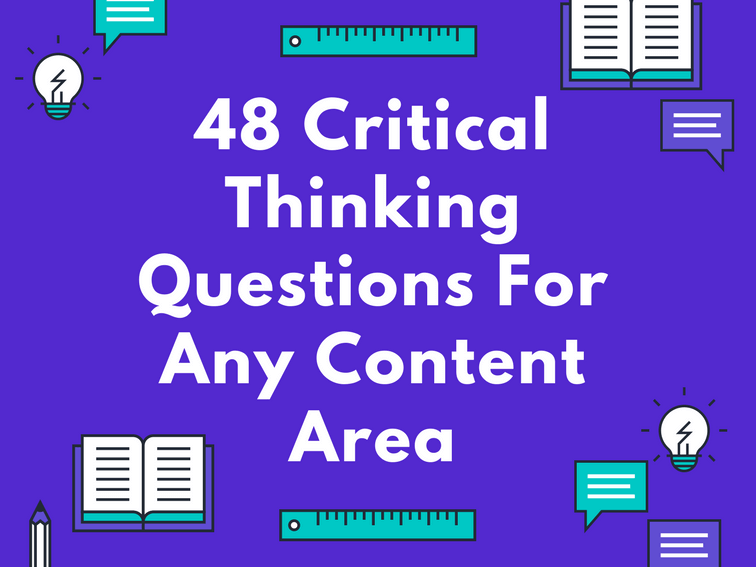
What Are Critical Thinking Questions For Any Content Area?
by TeachThought Staff
Critical thinking is the heart and soul of learning, and–in our estimation anyway–ultimately more important than any one specific content area or subject matter.
It’s also an over-used and rather nebulous phrase — how do you teach someone to think? Of course, that’s the purpose of education, but how do you effectively optimize that concept into lasting knowledge and the ability to apply it broadly?
Looking for more resources to teach critical thinking? Check out our critical thinking curricula resources on TpT.
What Is Critical Thinking?
This question is what inspires the creation of seemingly endless learning taxonomies and teaching methods: our desire to pin down a clear definition of what it means to think critically and how to introduce that skill in the classroom.
This makes critical thinking questions–well, critical. As Terry Heick explains in What Does Critical Thinking Mean?
“To think critically about something is to claim to first circle its meaning entirely—to walk all the way around it so that you understand it in a way that’s uniquely you. The thinker works with their own thinking tools–schema. Background knowledge. Sense of identity. Meaning Making is a process as unique to that thinker as their own thumbprint. There is no template.
After circling the meaning of whatever you’re thinking critically about—navigation necessarily done with bravado and purpose—the thinker can then analyze the thing. In thinking critically, the thinker has to see its parts, its form, its function, and its context.
After this kind of survey and analysis you can come to evaluate it–bring to bear your own distinctive cognition on the thing so that you can point out flaws, underscore bias, emphasize merit—to get inside the mind of the author, designer, creator, or clockmaker and critique his work.”
A Cheat Sheet For Critical Thinking
In short, critical thinking is more than understanding something — it involves evaluation, critiquing, and a depth of knowledge that surpasses the subject itself and expands outward. It requires problem-solving, creativity, rationalization, and a refusal to accept things at face value.
It’s a willingness and ability to question everything.
The Ultimate Cheat Sheet For Digital Thinking by Global Digital Citizen Foundation is an excellent starting point for the ‘how’ behind teaching critical thinking by outlining which questions to ask.
It offers 48 critical thinking questions useful for any content area or even grade level with a little re-working/re-wording. Enjoy the list!
48 Critical Thinking Questions For Any Content Area

See Also: 28 Critical Thinking Question Stems & Response Cards
48 Critical Thinking Questions For Any Content Area